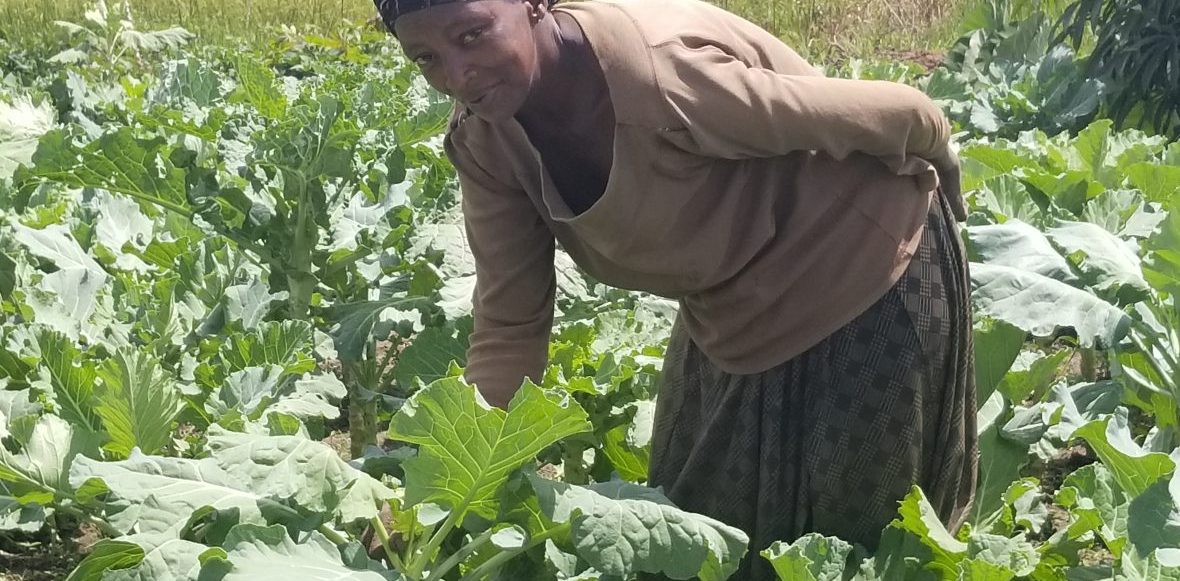Promoting Girl Child Education and Sustainable Agriculture for Improved Food Security and Income among 300 Orphans and Vulnerable Children Plus 300 Vulnerable Women Headed Households in Uganda is another project being implemented by Eco-Agric Uganda in Kitukutwe village, Kyadondo county in Wakiso district. This is being done through supporting people to improve food security, nutrition and income in their households. The project is based on the need to economically and socially strengthen OVC and their care givers while improving access to basic services. The project provides different services as below:
Provision of Scholastic materials to primary and secondary children
In order to have the pupils and students progress well in their education there is need to provide them with scholastic materials. The scholastic materials provided include pens, books and uniforms. The distribution is done depending on the child’s need (vulnerability level). Most of them received all the three items. Other services offered are guidance and counseling, psychological support to ensure that the children have an ownership status of the project. Continuous home and school visits are conducted. The pupils are always encouraged to work hard and put much emphasis on agriculture because it is the easiest and cheapest enterprise to invest in. messages on reproductive health are constantly part of the sessions so that they can grow in a health state and also be able to pass on the message to other community members especially at school and in their communities. This would have a great impact in behavioral change.
Training vocational student in hair dressing and catering
OVCs have proceeded with the chance of training them in hair dressing and styling At the moment, most of them can plait more than four hair styles. Amongst these are pencil, twist three strand, dreads, straws, bagiya, weave and the different styling done after hair treatment. They can now provide services to their clients preparing for their functions like introduction, graduation and wedding. For catering students, they can prepare a complete buffet, sausages, baking, stew, burgers, fish fillet, salads, pizzas, Rolex, chicken pie, meat pie, scotched eggs, katoogo, Luwombo, Kebab, tea and the like. As they develop their skills in those fields, students have been given entrepreneurship trainings so as to prepare them for life after studies. A saving culture has been installed in them as a way of strengthening them economically where they are being trained to save some money that will help them after the training. These students have also been trained to live a safe life, nutrition and food security. Engagement of the students in agricultural activities has been at the peak because it is the easiest way through which they can improve their livelihoods. Most of the students have now the capacity to run saloons on their own and can conduct catering services to their best and have been provided with startup kits.
Entrepreneurship and business skills training
Despite the efforts put forward to help the beneficiaries start income generating activities, it was realized that most of them lacked the knowledge and skills of how to conduct businesses. Too often people think there is need of a lot of money to start a business, but this is not really the case. Successful business implementation is accompanied by continuous trainings to instill the needed skills along the process. The beneficiaries are being trained in Entrepreneurship and business skills so as to be able to start, run, expand and sustain their businesses. The trainings covered topics on business identification, planning, implementation, record keeping and good customer care. It is believed that when the beneficiaries start and sustain their businesses, after a certain period of time, they will be able to handle their domestic needs and more so educate their children in good schools which will be an indicator of improved livelihood accruing from the project.
Training in mushroom production
Being an agricultural based organization, the beneficiaries have been trained in mushroom production. The enterprise was chosen because it can be conducted on limited land, require less capital to start, few people are engaged in mushroom production yet it is on high demand and it gives returns in the shortest time possible.
It is hoped that the avocation of mushroom farming will become a very important cottage industry activity in the integrated rural development program, which will lead to the economic betterment of not only small farmers but also of landless labourers and other weak sections of communities. Mushroom farming is a complex business, which requires precision. Indeed, it is not as simple as what some people often loosely stipulate. It calls for adherence to precise procedures.
Market development and value addition
It is important for vegetable growers to have a market outlet for their product before they choose to start production. Good marketing plans start with the customer and work backward to production. Potential growers should first determine exactly what buyers want, how they want it, and when they want it. They then must determine how these crops should be grown. Even selecting varieties and determining planting times are basic marketing decisions. Uganda growers should pay particular attention to comparisons of marketing time required, compatibility with off-farm employment, and compatibility with other crop production. Individual situations vary, and producers often must learn about their particular markets by starting small and getting a foot in the door. In developing a sound marketing plan the following questions should be answered:
• What crops to grow?
• How much of these crops should I produce?
• To whom or where shall I sell the produce that I will grow?
• How much will it cost me to produce and market these crops?
• What are the risks associated with the production of these crops?
